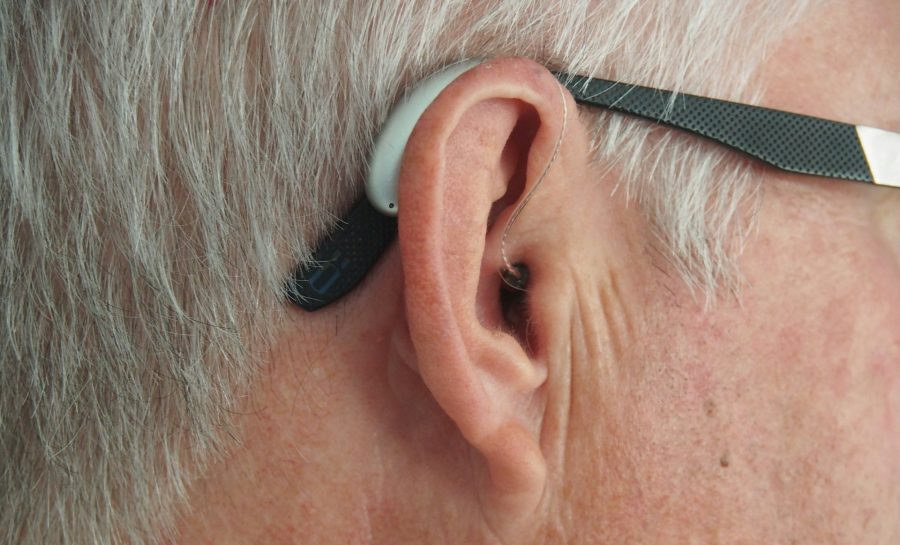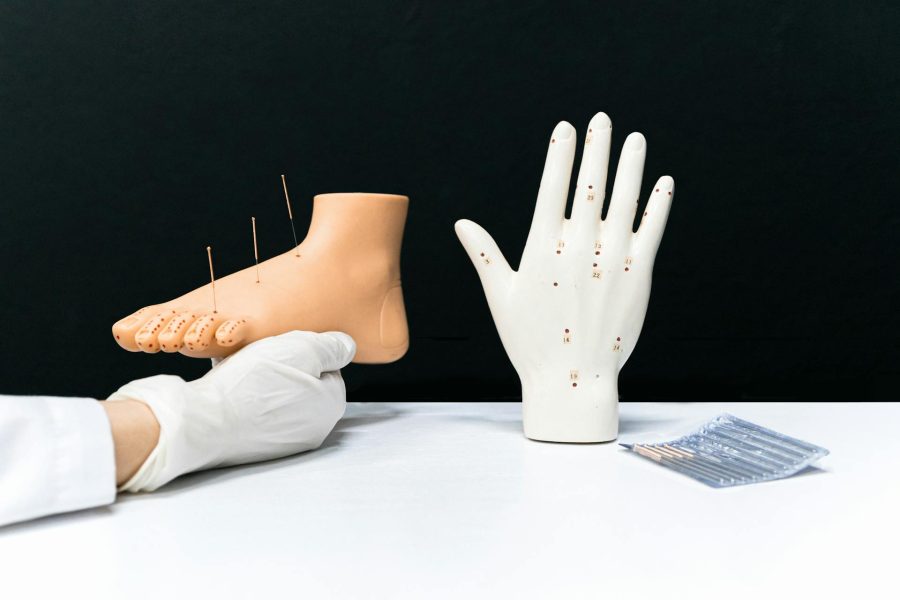Acupuncture for tinnitus involves using thin needles to stimulate specific points on the body, aiming to restore energy balance and reduce the severity of tinnitus symptoms.
Just imagine a persistent, high-pitched tone that sneaks into your thoughts, making it impossible to focus. At first, it’s a fleeting annoyance, like the hum of an old refrigerator in the background. But for some, this sound doesn’t fade—it lingers, sometimes growing louder, sometimes quieting down, but always there, disrupting the peace. This experience is known as tinnitus, a condition with no definitive cure. However, many people turn to alternative treatments like acupuncture to find a solution.
If you would like to know more, read on as we explore the effectiveness of acupuncture for tinnitus, how it works, and what to consider before giving it a try. For those who can’t escape the noise, every possibility is worth considering.
What Is Tinnitus?
Tinnitus is not a specific disease but rather a symptom indicating something is wrong within the auditory system or ear structures. It manifests as the perception of sound when no external sound source is present.
Some might experience it as a high-pitched whine, similar to the persistent hum of a tuning fork. Others could hear a rhythmic clicking, like the ticking of a distant clock, or a low, roaring noise reminiscent of ocean waves. The nature of these sounds varies widely—not just in their quality but also in their duration.
For some, tinnitus might only last a few seconds, while for others, it can be a constant companion, persisting for days, weeks, or even longer. Either way, both continuous or intermittent tinnitus can significantly affect one’s quality of life, interfering with the ability to focus, sleep, or even enjoy silence.
Common causes of tinnitus
Several factors can lead to the onset of tinnitus, including:
Hearing loss

One of the most common triggers, especially age-related hearing loss, occurs as the delicate hair cells in the inner ear deteriorate. When these cells are damaged or die, the brain may compensate by creating phantom noises, leading to the perception of tinnitus.
Ear infections and blockages
Conditions obstructing the ear canal, such as earwax buildup, infections, or sinus congestion, can also lead to tinnitus. Such blockages can change the pressure within the ear, disrupt the normal hearing process, and result in temporary or persistent tinnitus.
Exposure to loud noises
Prolonged or sudden exposure to loud sounds—like those from concerts, heavy machinery, or explosions—can damage the sensory hair cells in the inner ear. This damage often leads to tinnitus, which can be temporary after short exposure or permanent with prolonged exposure.
Head and neck injuries
Tinnitus can also result from trauma to the head or neck. Such injuries might disrupt the normal processing of sound, leading to persistent ringing or other auditory disturbances.
Medical conditions
Certain medical conditions, such as high blood pressure, hyperthyroidism, and Lyme disease, have also been linked to tinnitus. These conditions can affect blood flow, nerve function, or general health, contributing to the development of tinnitus.
Given the variety of potential causes, it’s best to consult with a healthcare provider before exploring acupuncture treatments. A thorough medical evaluation can help rule out any underlying issues that may require specific treatment or intervention.
What Is Acupuncture?

Acupuncture is part of traditional Chinese medicine (TCM) that dates back thousands of years. In TCM, the smooth flow of Qi, the body’s life force or energy, is essential for maintaining good health and well-being. When the flow of Qi is blocked or disrupted, it can lead to illness, discomfort, or imbalance in the body. In these cases, acupuncture can help by inserting needles into specific points that carry that energy.
How does acupuncture for tinnitus work?
When it comes to treating tinnitus with acupuncture, the principle remains the same: balancing the body’s Qi, particularly in areas related to the ears and auditory system. TCM views tinnitus as a sign of internal imbalance, often linked to disruptions in the flow of energy through certain meridians that connect to the ear. The kidney and gallbladder meridians, for example, are believed to play a significant role in ear health.
During an acupuncture session for tinnitus, the acupuncturist will assess the patient’s symptoms and identify which internal imbalances might be contributing to their tinnitus. For instance, if tinnitus is believed to stem from a kidney imbalance (which is common in TCM theory), the acupuncturist may stimulate points along the kidney meridian to restore balance. Similarly, other points in the head, neck, or even hands and feet may be targeted to improve circulation and address the specific energetic imbalances causing tinnitus.
Benefits of acupuncture for tinnitus
Acupuncture offers several potential benefits for individuals dealing with tinnitus. Since tinnitus is often difficult to manage with conventional treatments, acupuncture can provide a complementary or alternative approach for those seeking relief. Some of the notable benefits include:
– A noticeable decrease in the intensity and frequency of tinnitus after acupuncture sessions.
– Improved sleep quality and mental focus.
– Minimal side effects (when performed by a trained professional).
Acupuncture points for tinnitus
The success of acupuncture for tinnitus often depends on the acupuncturist’s skill in selecting and targeting the appropriate acupuncture points. According to TCM, specific points along the body’s meridians correspond to the ears and auditory system. Some of the most commonly used acupuncture points for tinnitus include:
– Ermen (TB21) – Located near the ear, this point is often used to treat ear-related issues.
– Tinggong (SI19) – Another point near the ear, Tinggong is commonly used for hearing problems and ear discomfort.
– Tinghui (GB2) – This point, found near the ear, is believed to help with auditory issues, including tinnitus.
– Fengchi (GB20) – Located at the base of the skull, Fengchi is used to treat headaches, migraines, and tinnitus.
– Yifeng (SJ17) – Found behind the earlobe, this point is frequently used for ear problems and tinnitus.
– Hegu (LI4) – Although located on the hand, this point is used for various conditions, including tinnitus.
Each of these acupuncture points is chosen based on the individual’s symptoms and underlying causes, as determined by the acupuncturist during the consultation. The precise combination of points will vary depending on the patient’s overall health, lifestyle, and specific type of tinnitus, as defined by TCM.
What Does the Research Say on Acupuncture for Tinnitus
Many studies have increasingly pointed to acupuncture as a promising solution for tinnitus. In fact, research continues to highlight the potential of this ancient therapy in reducing tinnitus symptoms, where conventional treatments often fall short.
For example, a randomized, double-blind clinical trial demonstrated that acupuncture can effectively reduce the severity and loudness of tinnitus in patients with chronic non-pulsatile tinnitus. Not only did patients experience improvement during the treatment course, but the benefits also persisted three weeks after treatment, suggesting that acupuncture may offer lasting relief.
This finding aligns with the results from systematic reviews on the effects of acupuncture on the outcome of tinnitus, where 11 out of 14 reviews indicated that acupuncture had a positive impact on reducing tinnitus symptoms. These studies consistently showed that acupuncture outperformed other treatments, including medication, in reducing tinnitus severity and improving patients’ quality of life. In some cases, combining acupuncture with conventional treatments led to even better results. Electroacupuncture, a variation of traditional acupuncture, was also found to be particularly effective in some instances. Collectively, these reviews reinforce the notion that acupuncture is a valuable treatment option for managing tinnitus.
Further supporting these findings, a meta-analysis involving 34 randomized controlled trials and 3,086 patients revealed that both acupuncture and moxibustion were significantly more effective than traditional therapies in reducing tinnitus severity and improving quality of life. These treatments led to notable reductions in tinnitus intensity, as measured by the Tinnitus Handicap Inventory (THI) and Visual Analogue Scale (VAS), and helped alleviate related psychological symptoms such as anxiety and depression. Additionally, the study confirmed the safety of acupuncture and moxibustion, with minimal adverse effects reported.
Key Considerations Before Trying Acupuncture for Tinnitus
Before deciding to try acupuncture for tinnitus, it is important that you:
– Rule out any underlying causes of tinnitus before starting acupuncture.
– Make sure the practitioners are experienced in treating tinnitus. The NCCAOM can help you find certified practitioners.
– Confirm if your insurance covers acupuncture and how much.
– Wear loose clothing, avoid heavy meals, and arrive early to prepare for your appointment.
– Be ready for several sessions to achieve results.
– Remember that mild side effects like nausea, dizziness, or tenderness can occur but are rare.
Conclusion
While acupuncture is not a guaranteed cure for tinnitus, it offers an excellent potential avenue for relief, particularly for those who haven’t found success with other treatments. By addressing the energy imbalances believed to contribute to tinnitus, acupuncture can help reduce the severity of symptoms and improve quality of life.
If you’re not seeking acupuncture for your own tinnitus relief but are interested in helping others, you can pursue an acupuncture degree at the American Institute of Alternative Medicine (AIAM).
AIAM can teach you how to provide the relief people need—whether it’s tinnitus or other conditions, you can be the solution.
Frequently Asked Questions (FAQs)
How many sessions of acupuncture do you need for tinnitus?
A typical course of acupuncture might involve 6 to 12 sessions, but this can be adjusted based on the patient’s response to treatment. Some people may notice improvements after just a few sessions, while others might require ongoing treatment over several weeks or months.
Can acupuncture be used alongside other treatments for tinnitus?
Yes, acupuncture can often be used in conjunction with other treatments for tinnitus. Many people combine acupuncture with conventional therapies, such as sound therapy, hearing aids, or medications, to enhance their overall treatment plan. However, it’s important to consult with your healthcare provider to ensure that combining treatments is safe and effective for your specific situation.